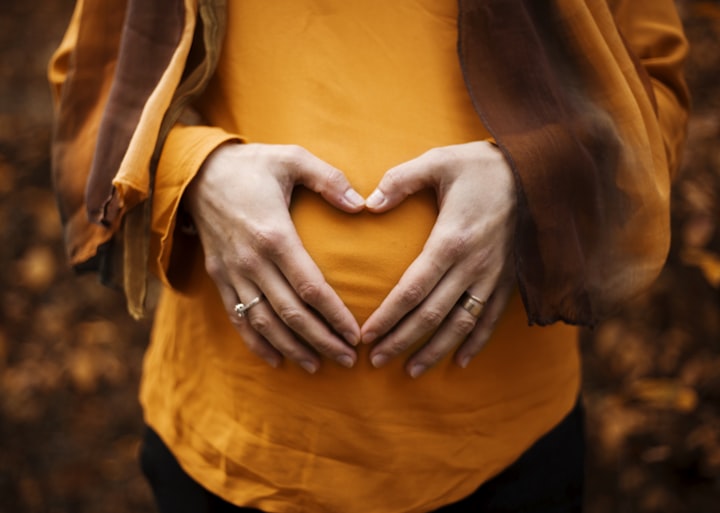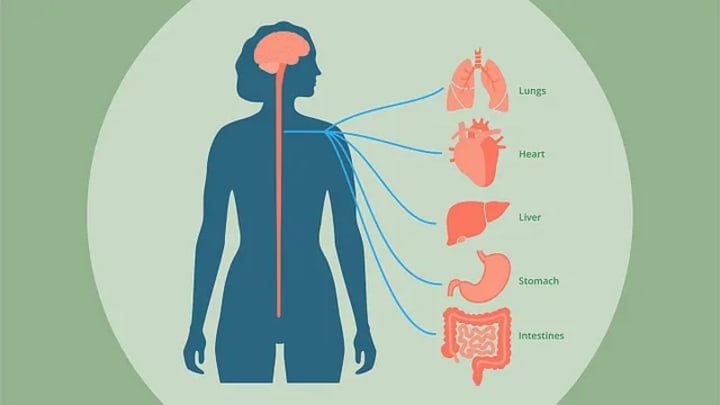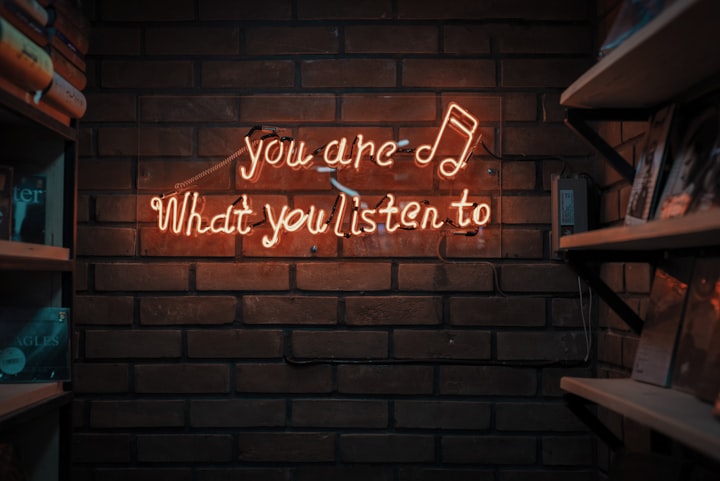The Gut-Brain Connection: Unraveling the Impact of Gut Microbiome on Mental Health
Navigating the Gut-Brain Axis: Insights into the Influence of Gut Microbiome on Mental Wellness

Hangxiety is a nightmare. If you’ve ever woken up after a night of moderate [or heavy] drinking to a fresh and acute batch of cringe and emotional stress, you’ll be all too familiar with the terrible phenomenon — especially the shame, irritability, and general malaise that can come with it.
One fateful morning after, following a particularly pleasant New Year’s celebration, I spent my brief morning hangover lying in bed, trying to figure out why on Earth alcoholic beverages had ruined my waking emotional state. My friends had just the classic “head and stomach ache” sort of hangover, and I was lying around, feeling healthy as a horse and emotionally distraught. At the moment, I envied the stomach aches. But, with a bit of internet sleuthing, I discovered that it’s a pretty common phenomenon to experience — about 12% of folks endure hangxiety after they drink.
I sleuthed the internet for answers, solutions, and anything that might relieve some of the cortisol bouncing about in my head. On the journey, I came across an anonymous forum comment stating that they were able to cure the feeling with probiotics. That taking a certain pill daily and focusing on gut health radically reduced the severity of the feeling.
With a shrug, I thought, “Eh, that could be worth a try.” and promptly turned myself into a guinea pig for gut health improvement, thinking, “Worst case scenario, I’d be taking supplements that are reasonably healthy, anyways.”
But then, after a few weeks of regular morning supplements, it worked, better than I had expected it, even. And, not only did it improve hangxiety, it generally improved my mental state. As one commonly afflicted by the symptoms of stress and anxiety (Yippee!), it felt as if probiotics had saved me. I was cured! Mostly! But the incredible improvement was hard to ignore.
Now, this is certainly a mere anecdote, and my singular data point shouldn’t be taken as an indicator of universal truth for all, especially when the placebo phenomenon is a potential explanation for such an improvement. Placebo or not, one success story is not equivalent to scientific truth.
But, it’s fascinating to consider that there may very well be a connection between digestive health and the brain. And, it isn’t just me and that random anonymous forum user that are starting to notice a pattern. Interest in growing in the scientific community about the gut-brain axis and mental health. Even in the preliminary stages, the results are shaping up to be fascinating.
The Gut Microbiome: An Overview
The gut microbiome, also occasionally called gut flora, is a collection of microorganisms that live inside your digestive tract. This collection you house from mouth to colon has incredible diversity, from bacteria to viruses, and from fungi to parasites. There are roughly 10–100 trillion microbial cells of these micro-creatures in you, mostly in your large intestine, and they serve an incredibly important function within your body.
Most of the critters inside of your gut are symbiotic, and help your body derive nutrients from the content you digest, like little workers processing materials in a digestive factory. However, some have the tendency to cause problems when in greater concentrations, which can occur with some illnesses, diet changes, and medications.
There are hundreds (if not thousands) of species in any given human gut, and each person’s little internal microbiome is unique to them. Your special concoction of little gut critters could serve as a fingerprint to identify you. Thankfully, however, the fingerprint option is a smidge less invasive.
And, interestingly, despite the difficulty of exploring a system with such variety, recent research is seeing promise. The microbiome’s ability to affect the health and well-being of its human host is emerging as an incredible area of research.
Linking Gut Health to Mental Health
If you’ve ever had a stomach ache from feeling nervous about something, it will come as no surprise to you that the brain and stomach can impact each other. That terrible butterflies-in-stomach feeling is likely partially due to the vagus nerve, which connects your brain to a wide variety of organs, sending signals back and forth. Some researchers speculate that that fluttering feeling could be caused by the sensation of increased signals received from the stomach.

Though the gut was considered a potential effector of mental health by scientists as early as the 19th century, the notion largely fell out of fashion until about twenty years ago, when researchers began to discover quite prominent correlations between gut health and mental health. The Vagus nerve and the gut-brain axis once again began popping up in modern medical research. Quickly, researchers began studying the association between gut microbiota and psychiatric disorders. Some recent studies have begun to identify the similarities in gut flora makeup of those experiencing certain mental disorders, others have pointed to how trauma modifies the gut flora (1,2) in humans who endure it.
Gut-brain axis research is experiencing a bit of a renaissance in the world of health.
Recent Research Findings
The research right now is either preliminary or actively being developed. As such, we’re far from finding definitive solutions about the world of gut health and how it affects mental health. (Remember those probiotics I mentioned in the introduction? They’re not yet confirmed to work. As of writing this, my anecdote of success is still a big ol’ unconfirmed scientific mystery.) The brain is a complicated and diverse organ, and so is the gut, and there will probably never be a one-size-fits-all solution for folks who experience chronic anxiety, depression, or other emotional disorders. But what we have is certainly compelling enough to explore further.
The successful studies in recent years that have made headlines have mostly dealt with the gut-brain axis in rats. Already, the preliminary studies focused on modifying the mental state of rats have seen incredible results, with one study even managing to give rats depression by altering their gut flora. “This new frontier of biological psychiatry and postgenomic medicine should be embraced by the mental health community as it plays an ever-increasing transformative role in integrative and holistic health research in the next decade.” wrote researchers of Stellenbosch University in another study that reviewed a collection of experiments which modified the emotional states of rats. From studies like these, we’ve been able to ascertain much about the signals sent back and forth within the axis and how microbiota interact with neurotransmitters.
But we aren’t quite ready to cure mental disorders in humans. Unfortunately, the rat gut and mind are not perfectly equivalent to those in us humans — some modifications will likely need to be made as researchers transition to human trials. We don’t yet know the perfect blend of biota to implant. But, for now, the experts recommend paying close attention to your gut health, encouraging a balanced diet with prebiotic and probiotic foods, and a limitation of antibiotic use unless necessary.
Therapeutic Implications and Future Directions
Before reporting that biotic mixture implants are the solution that will end all human anxiety, depression, etc., we’ll need much more research. But, as soon as we find more corroboration in the scientific field, we may see an incline in mental health treatments that target the gut and its microbiome, instead of addressing the mind or one’s emotional responses via therapy. As understanding of this complex system improves, we may see medically prescribed dietary interventions, probiotics, prebiotics, and, yes, maybe even fecal microbiota transplantations.
There is a growing fascination in the world of psychobiotics. Developments in this fascinating section of research are likely very close by. But, due to the complexity of the gut-brain axis and the challenge of biotic gut diversity, we still have a ways to go. As soon as these hurdles are cleared, however, we might see an incredible emergence of a new sort of mental health treatment.
--
There are copious amounts of promising datasets in the mental science field, but we haven’t yet performed enough studies to concretely confirm anything. We need further research and more in-depth exploration into the fascinating world of the microbiome and microbiome-based interventions for improving mental well-being. The brain and the digestive system are remarkably complex, as are emotions, the microbes that inhabit our bodies, and the general human condition. But, it’s remarkable to see how fast the science of mental health is advancing around us, and exhilarating to know how close we are to hitting a breakthrough. Or maybe that’s just the gut bacteria influencing my mood about the whole subject.
--
Disclaimer: If you’re curious about trying this out, please consult a doctor or psychiatrist. I got the go-ahead to take probiotics from a medical professional, who took into account my health and other prescriptions. You should do the same. I am not a medical professional, just a humble science nerd talking about neat research.
But if you do have a similar anecdote, let me know! I’d be super fascinated to hear your story. :)
P.S. If this genre fascinates you, I recommend checking out Ed Yong’s Book, I Contain Multitudes.
--
Crossposted from Medium. Follow My Account for New Articles Every Friday!
About the Creator
Olivia L. Dobbs
Science Enthusiast, Naturalist, Dreamer, Nerd.
I crosspost my Medium articles here :)
You can find my main account on Medium: https://medium.com/@oliviadobbs13
Check out my science! -> bit.ly/DobbsEtAl






Comments
There are no comments for this story
Be the first to respond and start the conversation.